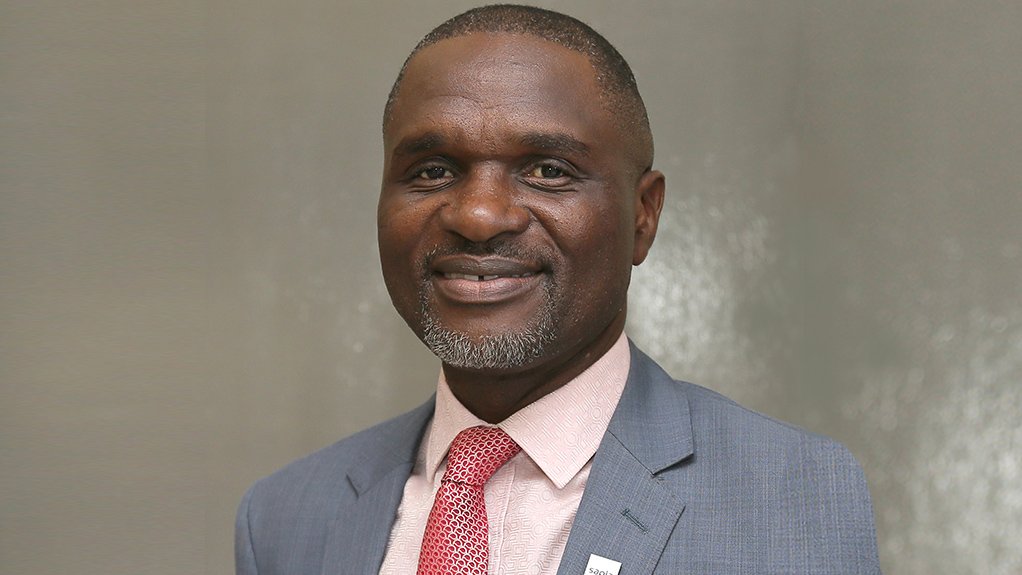Fuel industry does not foresee loadshedding-induced diesel shortages this winter
The South African Petroleum Industry Association (Sapia) is not anticipating a domestic diesel supply crunch this winter as a result of a spike in generator-related demand, despite ongoing warnings of possible higher levels of loadshedding and the prospect of Eskom, businesses and even some households turning to the fuel in an effort to mitigate the impact of regular power cuts.
Sapia executive director Avhapfani Tshifularo tells Engineering News that domestic diesel demand has remained relatively static over the past few years and that the average monthly consumption is about 1.1-billion litres currently.
He also notes that diesel consumption in June and July last year was about 50-million litres below the average, despite the fact that power cuts began intensifying materially following a wildcat Eskom strike in late June and early July.
Loadshedding has been materially worse in 2023, however, with Eskom data indicating that more energy had been shed already between January 1 and May 4 than during 2022 as a whole, during which Eskom shed 8 301 GWh.
Eskom is yet to publish its winter plan, but there are indications that it will operate its diesel-fuelled open-cycle gas turbines at a 20% load factor, up from the 11% level for the year-to-date. It has also been confirmed that Eskom has a R30-billion diesel budget and that this might even be augmented.
“In 2023, volumes are less than the equivalent period of last year suggesting that other economic factors are at work,” Tshifularo says, suggesting that the decline is arguably reflective of current weak economic conditions.
“Diesel demand has increased steadily from 2010 to 2019 and has since flatlined [and] in 2020 there was a marginal drop due to the pandemic.
“Diesel is very closely correlated with gross domestic product growth and given lacklustre growth, we have seen diesel market growth being muted.”
At a macro level, he notes that other factors affect diesel demand significantly more than demand from generators, particularly seasonal demand associated with sowing and reaping in the agricultural sector.
“One would anticipate higher levels of diesel demand as a result of loadshedding, but on an annual demand for diesel of about 13-billion litres, this is likely to be insignificant.”
He also stresses that there was no way of determining how much diesel demand was arising specifically from generators, with demand supplied by both the wholesale and retail sectors.
“If loadshedding continues at present levels or gets worse, one could expect increased diesel demand … [but] we cannot estimate this without other information which is likely to be too dispersed to get hold off – for example types of generators sold, as well as to which parties and through which supply chains.
“The other effect is higher loadshedding may lead to a fall in economic activity and this is likely to have a larger effect on diesel demand.”
Tshifularo says there are no obvious pinch points in the supply of diesel currently, but that the industry “normally ensures adequate stocks” through imports and will take steps should any imbalances begin to arise.
He says the fuel industry is not represented at the National Energy Crisis Committee, but is kept abreast of developments through Business Unity South Africa.
Asked whether there had been a noticeable rise in diesel consumption as a result of Transnet Freight Rail’s difficulties to sustain its electric fleet owing to a spares dispute with a Chinese supplier and ongoing cable theft, Tshifularo says this, too, is “difficult to ascertain”.
Article Enquiry
Email Article
Save Article
Feedback
To advertise email advertising@creamermedia.co.za or click here
Press Office
Announcements
What's On
Subscribe to improve your user experience...
Option 1 (equivalent of R125 a month):
Receive a weekly copy of Creamer Media's Engineering News & Mining Weekly magazine
(print copy for those in South Africa and e-magazine for those outside of South Africa)
Receive daily email newsletters
Access to full search results
Access archive of magazine back copies
Access to Projects in Progress
Access to ONE Research Report of your choice in PDF format
Option 2 (equivalent of R375 a month):
All benefits from Option 1
PLUS
Access to Creamer Media's Research Channel Africa for ALL Research Reports, in PDF format, on various industrial and mining sectors
including Electricity; Water; Energy Transition; Hydrogen; Roads, Rail and Ports; Coal; Gold; Platinum; Battery Metals; etc.
Already a subscriber?
Forgotten your password?
Receive weekly copy of Creamer Media's Engineering News & Mining Weekly magazine (print copy for those in South Africa and e-magazine for those outside of South Africa)
➕
Recieve daily email newsletters
➕
Access to full search results
➕
Access archive of magazine back copies
➕
Access to Projects in Progress
➕
Access to ONE Research Report of your choice in PDF format
RESEARCH CHANNEL AFRICA
R4500 (equivalent of R375 a month)
SUBSCRIBEAll benefits from Option 1
➕
Access to Creamer Media's Research Channel Africa for ALL Research Reports on various industrial and mining sectors, in PDF format, including on:
Electricity
➕
Water
➕
Energy Transition
➕
Hydrogen
➕
Roads, Rail and Ports
➕
Coal
➕
Gold
➕
Platinum
➕
Battery Metals
➕
etc.
Receive all benefits from Option 1 or Option 2 delivered to numerous people at your company
➕
Multiple User names and Passwords for simultaneous log-ins
➕
Intranet integration access to all in your organisation



















